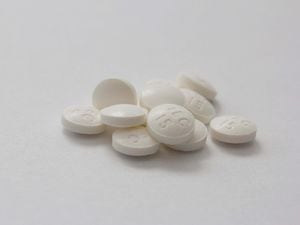NHS must introduce genetic testing to ‘stop medicines harming patients’
Data suggests that 90% of medicines currently prescribed only work in 30% to 50% of people.

The NHS must introduce genetic testing to pick up those people at risk of being prescribed medicines that either do not work or which cause them harm, according to a new report.
Experts from the British Pharmacological Society and the Royal College of Physicians said a test for NHS patients could be finalised this year and rolled out through 2023.
Data has suggested that 90% of medicines may only work in 30% to 50% of people, while 6.5% of all hospital admissions are caused by adverse drug reactions.
The team said there can be enormous variation between people over whether a medicine works, causes serious side effects and what dose is needed.
Scientists have established a genetic cause for such variation for more than 40 medicines.
In one example, some people taking the common blood thinner clopidogrel lack the enzyme needed to convert its active substance, and are therefore at higher risk of stroke.
Another example relates to the antibiotic gentamicin. About one person in every 500 carries a particular gene variant that predisposes them to hearing loss with this type of medicine.
Meanwhile, about 8% of the UK population also lack the gene which allows codeine to work properly, meaning they will not get any pain relief.
Professor Sir Munir Pirmohamed, from the University of Liverpool and chairman of the report’s working party, said a small number of pharmacogenomic tests are available in the NHS, but this needs to be expanded.
Pharmacogenomics is the the study of how genes affect a person’s response to drugs.
He said that by the time people are aged 70, there is a “70% chance you’re on at least one of these drugs that can actually be associated with pharmacogenomic variation”.
He added: “In the 21st century, we need to move away from the paradigm of ‘one drug and one dose fits all’ to a more personalised approach, where patients are given the right drug at the right dose to improve the effectiveness and safety of medicines.
“The ultimate goal is to make pharmacogenomic prescribing a reality for everyone within the NHS.”
Professor Sir Mark Caulfield, from Queen Mary University of London and president elect of the British Pharmacological Society, told a press briefing: “I can tell you that 99.5% of us in this room have at least one change in our genome that, if we come across the wrong medicine, it will either not work, or it will actually cause harm.
“Some 25% of us have four of these and it doesn’t matter what ancestry you are, everyone has these.”
Prof Caulfield said there was a need to “usher in an era of prevention” as he discussed panel testing – a genomic test that looks at a curated set of genes known to be associated with the development of certain conditions.
He said these tests cost about £100 to £150, adding: “A panel test may look at 40 genes, and experts read those regions of the genome very deeply.”
He said experts use these tests to look for the specific variations that cause harm or ineffectiveness. They are already used in the NHS for some cancer treatments.
Adopting panel testing for medicines reactions could take the form of a blood or saliva test, possibly via a GP, he added.
In a foreword to the report, Lord Prior, chairman of NHS England, said: “Implementation of pharmacogenomics into the NHS would be the first example in the world of integration into a whole healthcare system, again highlighting the leadership of the UK in genomics.
“I remember a time some five years ago when Prof Munir Pirmohamed came to see me to talk about the obscure, unknown and overlooked subject of pharmacogenomics, a subject of which I and most others knew little.
“No longer. It is now mainstream, it is the future, it can now help us to deliver a new, modern personalised healthcare system fit for 2022, not 1948.”
One study has suggested that the cost of people being admitted to hospital for averse drug reactions is £2bn in England.





